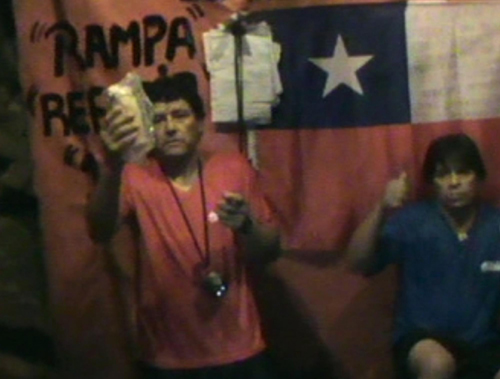Chilean miners celebrate bicentenary
"These 33 miner heroes, with their iron will, their spirit, their fight, their strength, are an example to all of us of what it means to be Chilean," Interior Ministry official Cristian Barra said at the ceremony.
A special greeting was sent to Carlos Mamani, the only Bolivian among the 33 miners, by his country's President Evo Morales, who arrived here as the guest of the Chilean government to attend the bicentenary celebration.
Three drills were currently working at the scene. On Friday, news reaching here said one drill of the rescue "Plan B" finally broke through to 630 meters underground, puncturing the top of a passage near the shelter in the mine where the miners took refuge
It will start to widen the shaft to about 70 cm, enough for an adult to come through.
The 32 Chileans and a Bolivian were found alive after 17 days of isolation in the mine near Copiapo, about 800 km north of Santiago, when rescuers reached them through 10 centimeter-diameter ducts drilled after the collapse.
The miners kept their wits during the ordeal, washing tiny bits of canned tuna and peaches down with sips of milk every other day to stretch a 48-hour emergency food supply.
The workers have since been receiving water, food, oxygen and messages through the ducts.
The government has refused to estimate the cost of the rescue effort but the drilling alone will cost nearly 5 million U.S. dollars, meaning the overall bill could reach 10 million dollars or more before the miners see sunlight.
Saturday -- the anniversary when Chile declared independence from Spain on Sept. 17, 1810, launching a war they finally won in 1818 -- will be the 46th day of the miners' confinement.
Michael Fortt, chief engineer of the rescue operation, said the miners were in good health and that they talked daily with their families.
 0
0 







